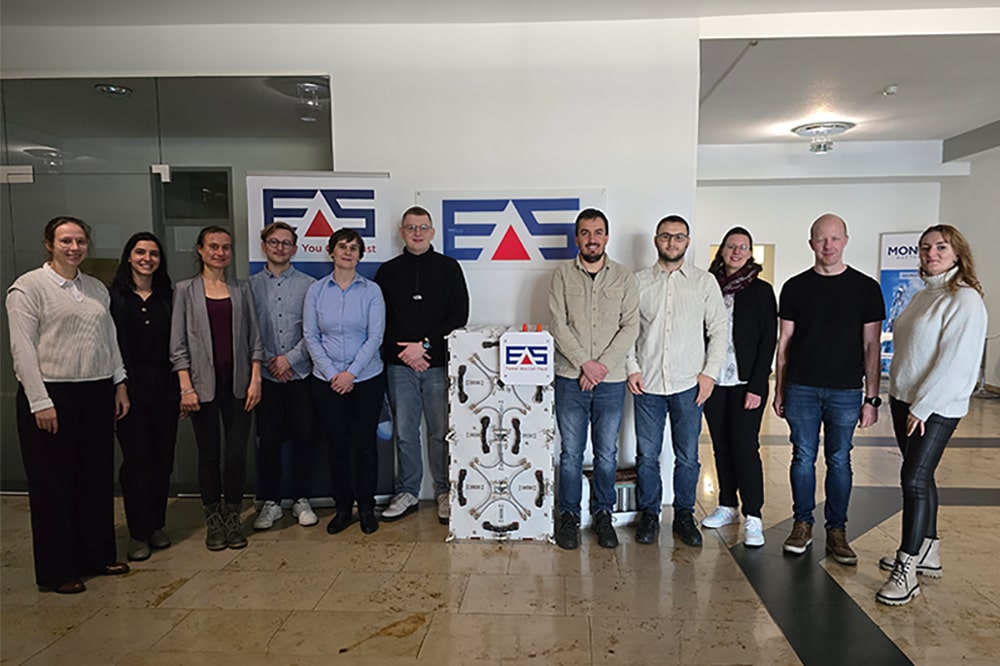EAS launches battery cell research project in Germany
In addition to the anticipated cost savings, the project also aims to replace solvent-intensive processes. The aim is to create the conditions for both a sustainable energy transition and European competitiveness against Asian markets.
The research project ‘SkaleD – Scaling extrusion-based direct coating’ is being funded with around 2.1 million euros from the ‘Special Climate and Transformation Fund’ of the Federal Ministry of Education and Research (BMBF). The project is being coordinated by EAS Batteries from Nordhausen in Thuringia. Manugy, Matthews International, the Fraunhofer Institute for Ceramic Technologies and Systems IKTS and the Fraunhofer Research Centre for Battery Cell Production FFB are also involved.
The partners want to develop the direct extrusion process, bring the associated system concept from pilot to industrial scale and supplement it with efficiency-enhancing innovations – including technology for simultaneous double-sided direct coating of the electrodes.
The ‘SkaleD’ research project builds on the direct extrusion process developed in the previous ‘OptiEx’ project in order to make the innovative technology suitable for mass production. According to EAS Batteries, the process represents a resource-saving alternative to the previously established process and overcomes the technological bottleneck of this crucial manufacturing step in the production of batteries.
The research alliance aims to adapt and improve the entire process chain. This applies in particular to the coating width and process speed as well as the associated optimisation of the plant technology and recipes. In addition, this project aims to realise simultaneous double-sided coating for the first time – initially in the form of a feasibility study – which can significantly increase the process speed.
“We are pleased that the federal government has recognised the importance of efficient mass production of battery cells and is funding our research work,” says EAS Managing Director Michael Deutmeyer. “In times of budget cuts, this is not a matter of course and once again highlights the relevance of our development effort. At the same time, this is an urgent appeal to support the entire location of Germany in implementing the energy transition with a new, significantly higher
budget for cell and battery research in a future-oriented way and to consistently continue in this direction with the bridge financing that has now been adopted.”
The background here is that after the KTF judgement, the German government radically cut funding for battery research. In January, however, the Ministry of Research surprisingly provided 25 million euros from its own funds to ensure the start of new projects.
The systems and processes developed in the project are intended to open up new sales markets – including the scaling of the concept from an industrial-like environment to a gigafactory scale. In this way, the project results should create versatile utilisation opportunities and international competitiveness. The research project will run for three years and ends on 31 December 2027.
As a highly specialised niche provider, EAS has been developing innovative cell and battery solutions at the Nordhausen production site for 25 years – including extremely robust and powerful cells for applications in the maritime industry, aerospace, aviation, NRMM (Non-Road Mobile Machinery) and the automotive industry. EAS Batteries has been part of the Monbat Group since June 2017. EAS Batteries is currently also involved in the ZirKat project, which aims to recover raw materials from LFP batteries and use them for the production of new batteries. EAS Batteries is also working on the DiLiRec recycling project to recover LFP.
eas-batteries.com (PDF)





0 Comments